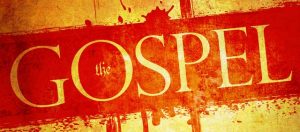 A short story can be a very powerful way to communicate big ideas. The writer must manage the material in such a way as to draw clear images for us quickly.
A short story can be a very powerful way to communicate big ideas. The writer must manage the material in such a way as to draw clear images for us quickly.
God tells us a powerful short story about Jonah. We are brought into his life at a critical point in order to communicate to us something about God that we must grasp as part of the overall gospel narrative (man’s brokenness and God’s redeeming grace). In fact, the gospel of Jonah (I know, you would not normally have called it that) is an amazing look right into the heart of man and God at the same time.
As well, God is in the process of counseling the prophet Jonah. Yes, in a certain way, we get to sit in on a counseling session between God and Jonah. Although the session or sessions come to an end quickly for us, we still get insight into God’s heart and Jonah’s heart. And that is the core of biblical counseling, bringing man and God together in such a way that man is faced with truth about God and truth about his own heart. The result depends on man’s response to what he sees and hears about God and what God wants of man.
In Jonah’s case, God wants to remind Jonah, and all of us, of His compassion–major theme number one. And Jonah knows this. When God asks Jonah to tell the people of Nineveh to repent, Jonah even admits that the reason he disobeys God is that He knows exactly what God will do if the people of Nineveh turn in repentance from their sins to God. God will remove the judgment he planned to carry out against the people of Nineveh which Jonah does not want to happen. So in effect, the good news for Jonah is that God is still compassionate and longsuffering because He does not leave Jonah in the belly of the large fish with his head wrapped in seaweed. He brings Jonah up again to dry land. But Jonah does not appreciate the care of God for Jonah. He especially does not appreciate God’s care for anyone other than himself and his own plans.
Also, God uses the story to communicate a second major theme to us and that is the sovereignty of God. He is in control. Jonah cannot get away from God’s power and control over the forces of nature which will be used against Jonah in his own rebellion against an all-powerful God. Jonah looks silly, foolish, childish in his selfish rants about God’s compassion and care for him and for the people of the city. God has compassion when Jonah pouts outside the city of Nineveh, and He grows a plant to shade Jonah; but then God’s sovereignty removes the plant. And Jonah believes that he is justified in his rant against God and the powers of nature at God’s disposal.
This is where the short story of Jonah ends abruptly. God chastises and corrects Jonah by using an object lesson to show Jonah his own sin–Jonah cares for shade and is mad when a plant dies and removes his shade, yet he does not care for the lives of a city–Nineveh. Unfortunately, we see no evidence of Jonah’s repentance. He does not appreciate a compassionate and sovereign God (the two major themes of this short story) and he does not turn from his selfish worldview while the city of Nineveh turns in mass from their sin to a holy and righteous God. Perhaps part of Jonah’s struggle is that he has had so little response from his own people to God’s call for repentance and true worship while here in the pagan city of Nineveh the people turn to God and worship Him.
